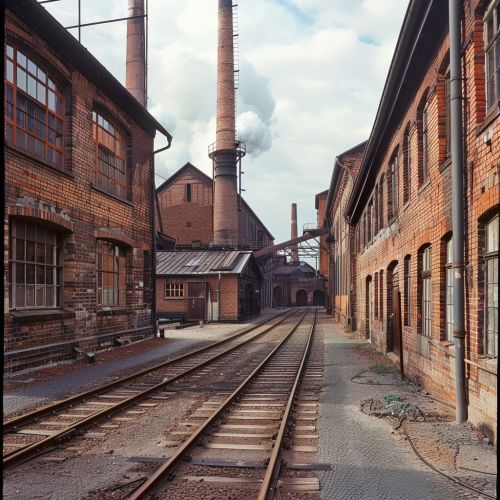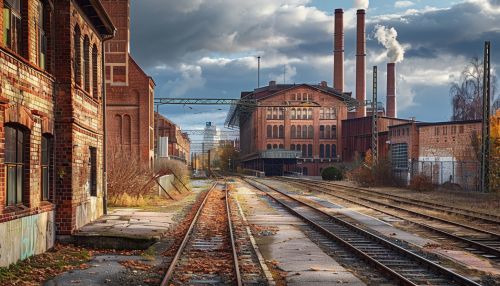Economy of Germany
Economic History
The German economy has a rich and complex history, shaped by a multitude of factors including geography, politics, and culture. The country's economic evolution has been marked by periods of rapid industrialization, devastating wars, and impressive post-war recoveries.
The roots of Germany's economic prowess can be traced back to the Industrial Revolution, which saw the country transform from a largely agrarian society to an industrial powerhouse. The late 19th and early 20th centuries were characterized by the growth of heavy industry, particularly in the Ruhr region, and the expansion of the railway network. This period also saw the emergence of large corporations and banks, which played a crucial role in financing industrial development.


The two World Wars had a profound impact on the German economy. The aftermath of World War I saw the country grappling with reparations, hyperinflation, and economic depression. World War II resulted in widespread destruction of infrastructure and industry. However, the post-war period, often referred to as the "Wirtschaftswunder" or "economic miracle", saw a remarkable recovery. This was driven by a combination of factors including currency reform, the Marshall Plan, and the hard work and ingenuity of the German people.
Modern Economy
Today, Germany boasts the largest national economy in Europe and the fourth largest by nominal GDP in the world. It is a leading exporter of goods, with key sectors including automobiles, machinery, chemicals, and electronics. The country is home to numerous multinational corporations, including Volkswagen, Siemens, and BASF, which are leaders in their respective industries.
Germany's economic model is often referred to as the "social market economy", which combines a free market capitalist system with strong social policies. This model emphasizes competition and entrepreneurship, while also providing a safety net for those in need. It has been credited with contributing to Germany's high standard of living and low levels of income inequality.
The country's economic success is also attributed to its strong emphasis on education and vocational training. The dual education system, which combines classroom-based education with on-the-job training, is particularly renowned. This system ensures a steady supply of highly skilled workers, which is a key factor in the country's industrial strength.
Challenges and Future Prospects
Despite its economic strength, Germany faces a number of challenges. These include an aging population, which poses a threat to the country's social security system, and the need to transition to a more sustainable, low-carbon economy. The country is also grappling with the implications of digitalization and automation, which are transforming the nature of work.
Looking ahead, Germany's economic prospects are closely tied to its ability to innovate and adapt. The country is a global leader in research and development, and is home to a vibrant startup scene. The government has also launched a number of initiatives aimed at promoting digital transformation and sustainable development.
See Also


